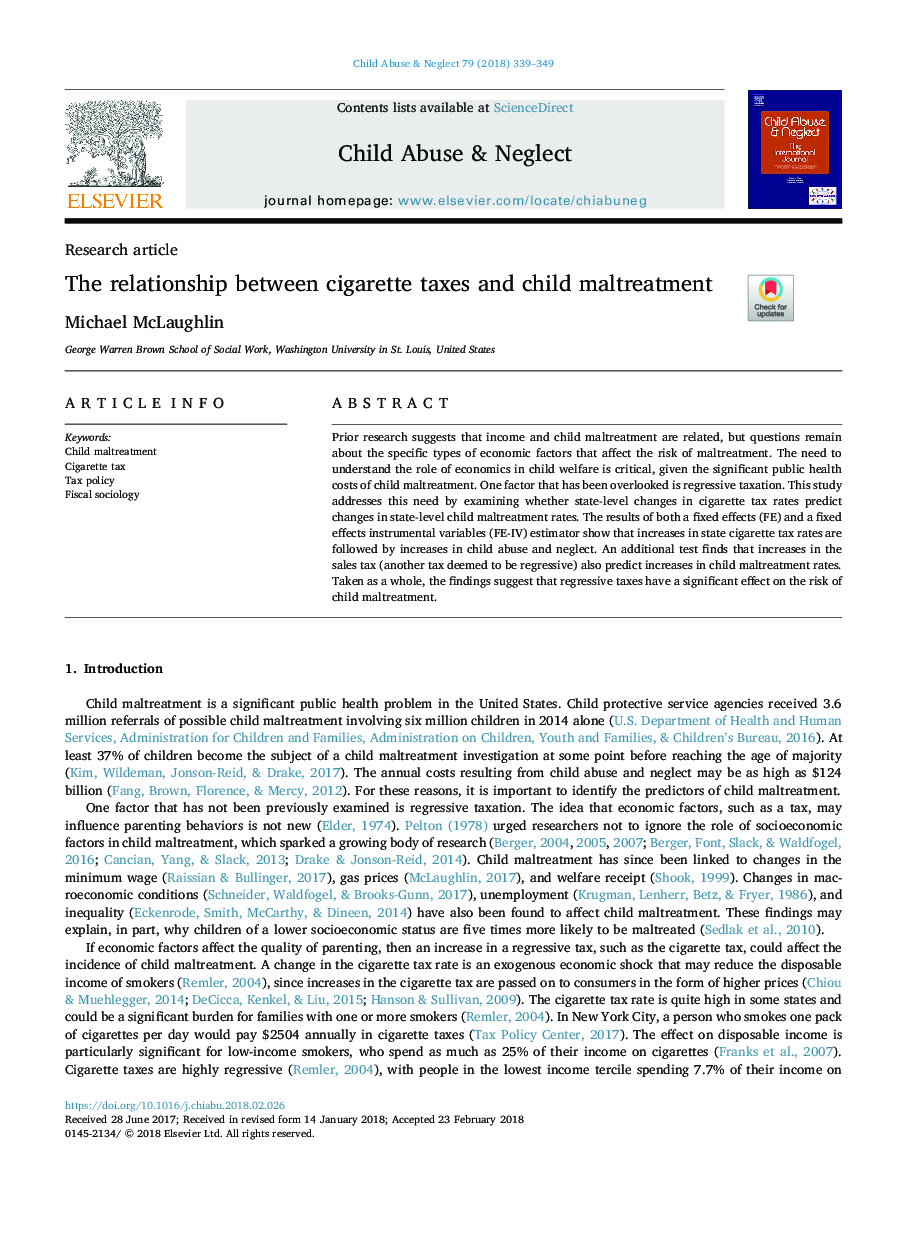| Article ID | Journal | Published Year | Pages | File Type |
|---|---|---|---|---|
| 6832018 | Child Abuse & Neglect | 2018 | 11 Pages |
Abstract
Prior research suggests that income and child maltreatment are related, but questions remain about the specific types of economic factors that affect the risk of maltreatment. The need to understand the role of economics in child welfare is critical, given the significant public health costs of child maltreatment. One factor that has been overlooked is regressive taxation. This study addresses this need by examining whether state-level changes in cigarette tax rates predict changes in state-level child maltreatment rates. The results of both a fixed effects (FE) and a fixed effects instrumental variables (FE-IV) estimator show that increases in state cigarette tax rates are followed by increases in child abuse and neglect. An additional test finds that increases in the sales tax (another tax deemed to be regressive) also predict increases in child maltreatment rates. Taken as a whole, the findings suggest that regressive taxes have a significant effect on the risk of child maltreatment.
Related Topics
Health Sciences
Medicine and Dentistry
Perinatology, Pediatrics and Child Health
Authors
Michael McLaughlin,
